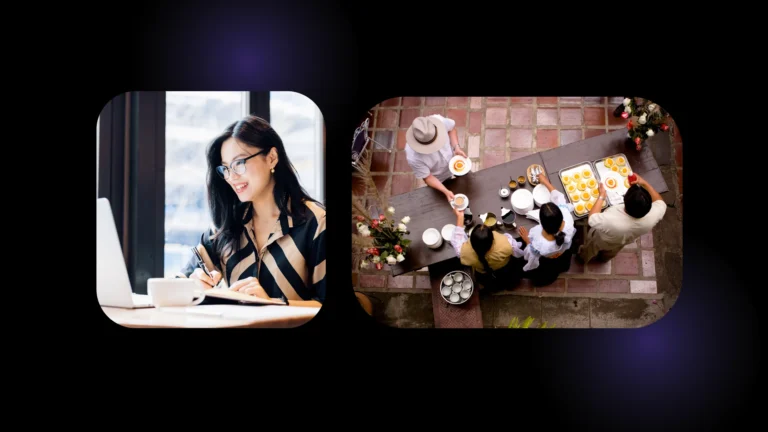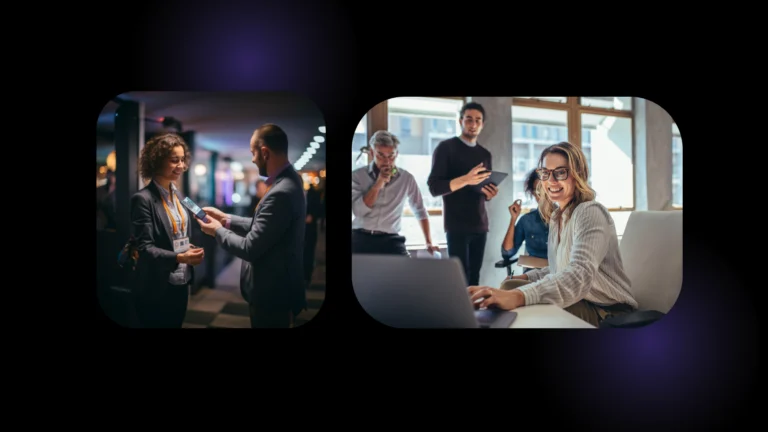In one of his incredibly valuable articles, Gary Vaynerchuk recently said, “My biggest problem right now, in general, is that I feel that the far majority of people in business organizations and media companies all across the board are storytelling in 2017 like it’s 2007.”
We’ll paraphrase his idea and say: Our biggest worry is that people will continue planning events in 2018 like it’s 2017.
Sounds crazy, considering the short time span. How much can things change in less than one year? Yet, being involved in developing and revolutionizing the event technology, we can clearly see the unstoppable speed of change that defines our industry.
From an increased expansion of weak AI for events to using social media stories as a promotion tool, we witnessed a bold transformation in event planning and marketing this year. This industry reshape came with both new technology advances and the evolution of our understanding about the real value of events.
From brand events to meaningful networking experiences, the role of meetings has shifted dramatically. What we previously knew as a gathering of like-minded people became a powerful medium for unique in-person experiences and communication, truly meaningful interactions, and program personalization for maximum impact.
Engaging in the path of radical transformation, we at Eventtia have focused on developing a new planning framework to help event professionals (and other industry professionals) to skyrocket their results. Considering this, here’s what we believe is in store for 2018:
Attendee journey automatization
Apart from ensuring a flawless planning strategy, it’s your responsibility to facilitate and maximize the interaction experience the guests will have with the logistics and the event itself. To make this happen, you must focus on providing a strong accompaniment system. This will guarantee a gratifying journey for your attendees. Thanks to the quick development of event technology, there are multiple ways in which you can design a flawless experience. Yet, all of them revolve around one imperative element: to automatize the attendee journey (read more).
Event marketing and brand awareness
According to Markdebrand, “In-person events have the power to sway a customer’s opinion regarding a brand, big or small, and influence their purchasing habits while creating an emotional and sensory connection with every attendant.” In addition, an EventTrack survey showed that if you decide to plan brand events, you’ll increase the chances of improving your consumers’ perception about your brand and influencing their future purchasing decisions (read more).
Event business intelligence
This concept describes the technology-driven mechanism of collecting data and generating actionable roadmaps to help professionals make informed planning and event marketing decisions, while focused on attendees’ needs and interests. From a tactical planning perspective, event intelligence can help you understand the attendees’ motivations. This can influence the event programming diversification and richness. For example, by designing different guest profiles, you can determine the goals guests want to achieve by attending your event. Subsequently, you can set up a customized schedule for every type of attendee, this way personalizing their experience (read more).
Smart events and experience digitization
Drawing the comparison between a smart city and a smart event, we identify the following similarity: A seamless and nondisruptive integration of technology with the environment. When attending a smart event, people don’t feel forced to use technology or different apps to navigate their own experience. On the contrary, the interaction with the event technology and the environment feels natural and easy to explore. In other words, you don’t have to figure out how to make your guests download an event app or use an event platform. Planning a smart event equals designing a friendly context in which your attendees will engage with the digital layer without feeling forced to do so (read more).
Meaningful networking
There’s a clear difference between traditional networking sessions, the ones you just add to the event program (usually during coffee breaks), and B2B matchmaking dynamics. When attending events, some guests may feel uncomfortable talking to strangers. They also aren’t always able to find relevant connections. Silly ice-breaking games, rivers of alcohol, and exquisite catering won’t help. If you want to provide truly gratifying and meaningful networking experiences, you need a different approach. Considering this, B2B matchmaking became a powerful tool in transforming networking into a relevant and efficient dynamic (read more).
Although it’s almost impossible to keep up with all the changes that happen in the meetings industry, remember that you are the one who has the real power of changing the way you plan, promote, and run your events. There are multiple technological implications that are constantly increasing the speed of industry transformation. However, you are the main game changer who can make 2018 a great year for the event industry!
Are you ready for the challenge?






